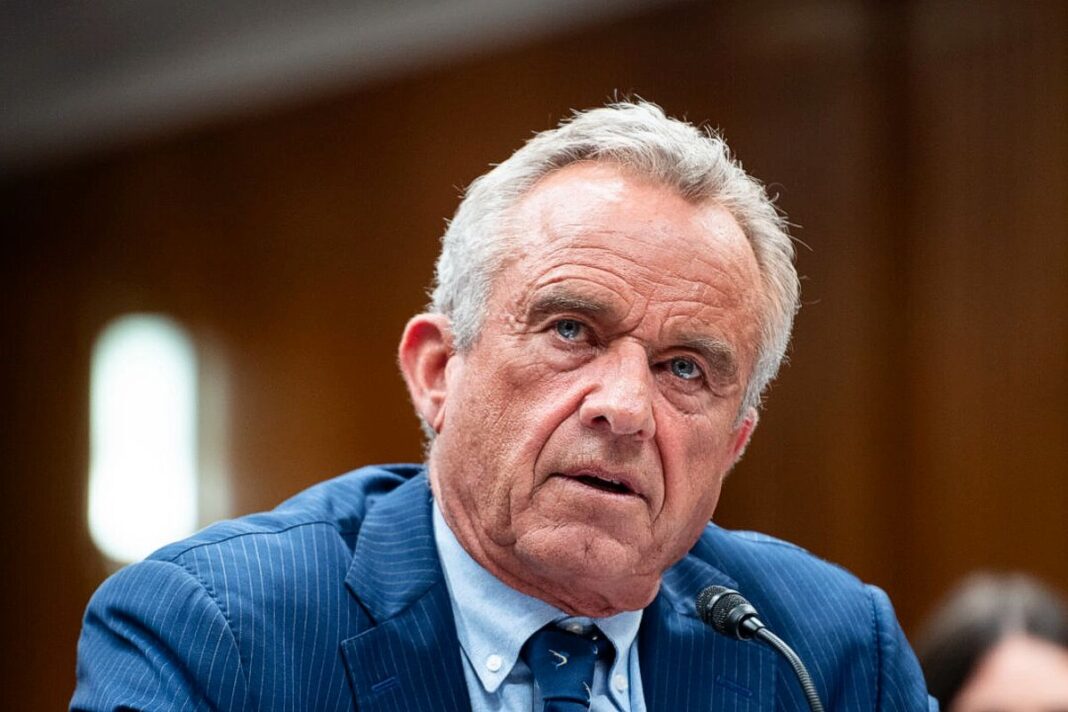The health secretary adopted a recommendation from an advisory panel.
Health Secretary Robert F. Kennedy Jr. has signed a recommendation to remove a mercury-based preservative from influenza vaccines in the United States, the Department of Health and Human Services said on July 23.
Kennedy signed the recommendation from the Advisory Committee on Immunization Practices on Tuesday, the agency said.
“After more than two decades of delay, this action fulfills a long-overdue promise to protect our most vulnerable populations from unnecessary mercury exposure,” Kennedy said in a statement. “Injecting any amount of mercury into children when safe, mercury-free alternatives exist defies common sense and public health responsibility. Today, we put safety first.”
Thimerosal, which is about 50 percent mercury by weight, was removed from many vaccines beginning in 1999, when some studies indicated that early exposure to mercury could negatively impact children. The Centers for Disease Control and Prevention says on its website that “there is no evidence of harm caused by the low doses of thimerosal in vaccines, except for minor reactions like redness and swelling at the injection site.”
Multi-dose flu vaccines to this day still contain thimerosal, with about 5 percent of the shots administered in the United States in late 2024 and early 2025 containing the preservative, according to the Food and Drug Administration.
The Advisory Committee on Immunization Practices advises the CDC, and the CDC’s director typically decides whether to adopt or reject its recommendations. President Donald Trump’s nominee to head the CDC is awaiting a vote by the full Senate, and the CDC does not currently have a director, according to its website.
The CDC is part of the Department of Health and Human Services.
In June, the CDC’s advisory committee, in a series of 5-1 votes, with one abstention, advised government officials to stop recommending thimerosal-containing vaccines. Advisers, who were appointed by Kennedy after he ousted the previous members, said they were concerned about children being exposed to mercury and wanted to remove a source of that exposure.
“We do have a risk of repeated exposure to this. So it’s not just a one administration, but potential chronic exposure on an annual basis,” Dr. Robert Malone, one of the advisers, said at the time.








